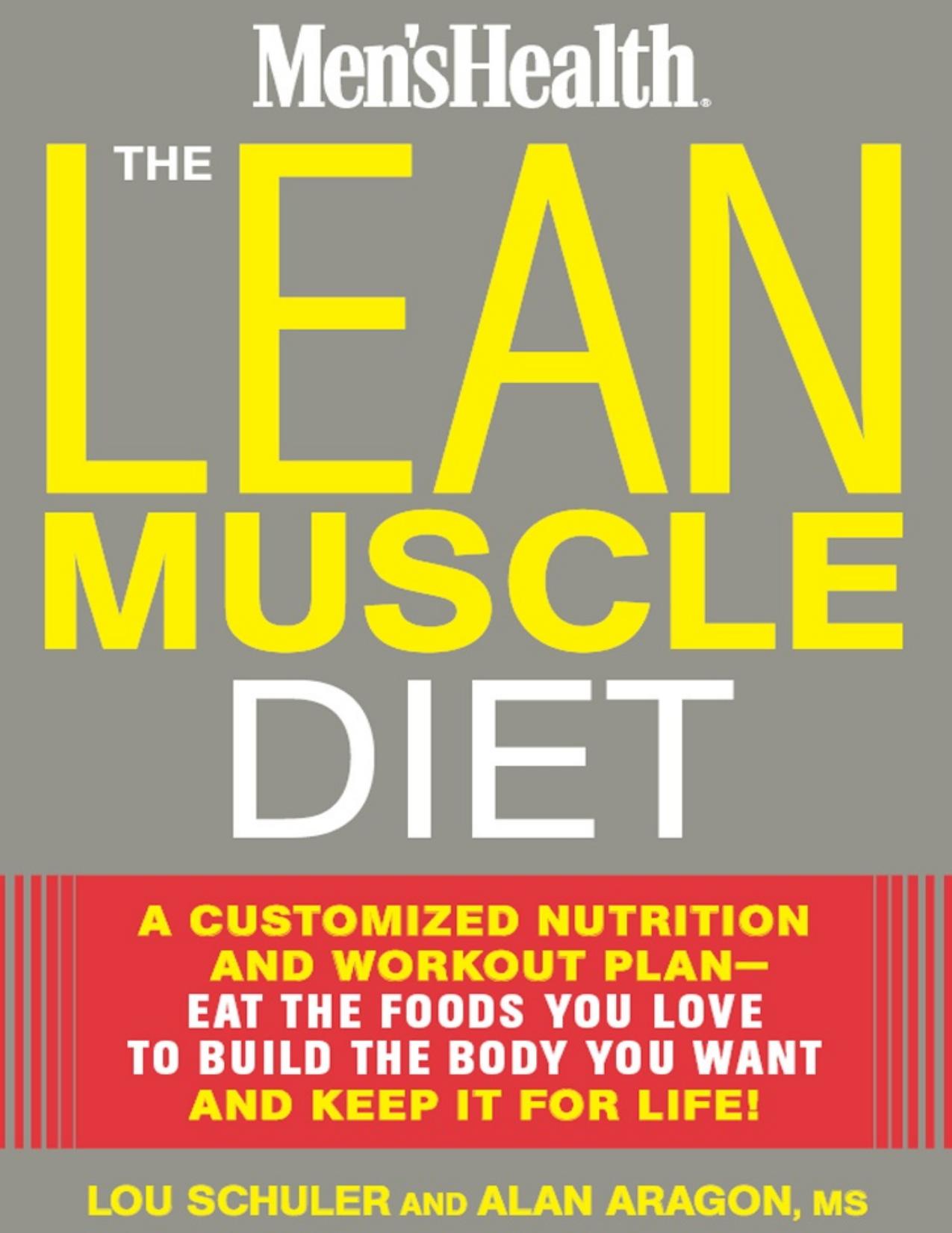The Lean Muscle Diet by Lou Schuler

Author:Lou Schuler
Language: eng
Format: epub, pdf
Publisher: Rodale
Published: 2014-05-04T16:00:00+00:00
Does Meal Frequency Matter?
Short answer? No, not really. At least, not in the way you think. But this is such a ripe area for mythology and countermythology, bunking and debunking, that it’s worth taking a few minutes to look at what we actually do and don’t know about meal frequency.
Alan and I entered the fitness industry about the same time, in the early 1990s. Back then there was a popular analogy: Your body’s metabolism is a fire, and the more frequently you stoke it with fuel, the more consistently it will burn. You know that throwing a big log on a fire will temporarily tamp down the blaze, while a steady supply of kindling will keep it going just the way you like it: hot and steady.
It was a beautiful analogy; Alan repeated it to his personal-training clients, and my fellow editors and I used it in countless articles and books. You could identify a serious gym rat by the Tupperware meals he carried with him in a cooler. He knew, as we all knew back then, that if you didn’t eat small, frequent meals, your metabolism would slow down.
The formula was based on tradition and social proof. It’s what really lean bodybuilders and fitness models did, so it must work. But there was no evidence to back it up. When researchers experimented by isolating volunteers in metabolic chambers and measuring every calorie they took in or expended, they found no difference caused by the number of meals. It didn’t matter if it was two, seven, or anything in between. If calories were kept constant, so was the metabolic rate.
One recent study compared 3 to 14 meals a day (yes, 14!) and found no difference in either fat or carbohydrate usage over 36 hours.
That said, some research has shown that an irregular number of meals—two on Monday, five on Tuesday, for example—will lead to metabolic consequences. You’ll burn fewer calories after eating and tend to have reduced insulin sensitivity. Which raises an obvious follow-up question: Does this apply to all the people who practice intermittent fasting, going without food altogether for up to 24 hours at a time? That’s probably a stretch. The ones we know who’re into this type of fasting are all regular exercisers, which is known to improve insulin sensitivity and other health markers.
Download
This site does not store any files on its server. We only index and link to content provided by other sites. Please contact the content providers to delete copyright contents if any and email us, we'll remove relevant links or contents immediately.
How to Be a Bawse: A Guide to Conquering Life by Lilly Singh(6718)
Deep Work by Cal Newport(5531)
The Longevity Diet by Valter Longo(4461)
The Fat Loss Plan by Joe Wicks(4257)
The Four-Pack Revolution by Chael Sonnen & Ryan Parsons(3494)
The Ultimate Bodybuilding Cookbook by Kendall Lou Schmidt(3346)
The French Women Don't Get Fat Cookbook by Mireille Guiliano(2994)
Super Food Family Classics by Jamie Oliver(2921)
Turn Up Your Fat Burn! by Alyssa Shaffer(2820)
Factfulness_Ten Reasons We're Wrong About the World_and Why Things Are Better Than You Think by Hans Rosling(2764)
Not a Diet Book by James Smith(2750)
Tom Kerridge's Dopamine Diet: My low-carb, stay-happy way to lose weight by Kerridge Tom(2686)
Body Love by Kelly LeVeque(2637)
Self-Esteem by Matthew McKay & Patrick Fanning(2613)
The Unbecoming of Mara Dyer by Michelle Hodkin(2492)
Tone Your Tummy Type by Denise Austin(2373)
The Fat Chance Cookbook by Robert H. Lustig(2326)
LL Cool J's Platinum 360 Diet and Lifestyle by LL Cool J(2318)
Men's Health Best by Men's Health Magazine(2103)
